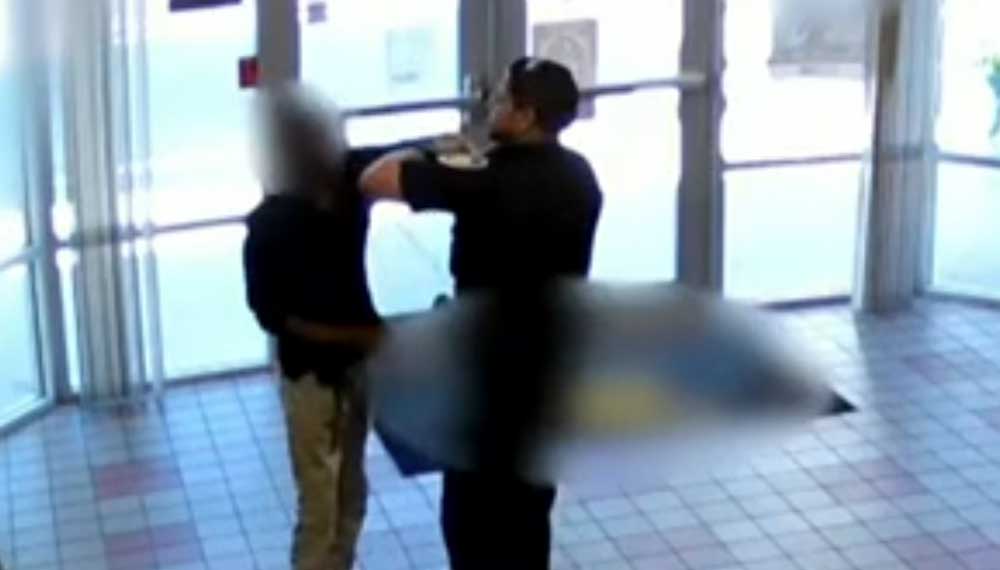
A federal appeals court Monday said a former Central Florida school-resource officer can face a civil lawsuit stemming from an incident in which he “slammed” a 13-year-old student to the floor and pinned him.
A panel of the 11th U.S. Circuit Court of Appeals overturned a district judge’s ruling that former Officer Mario Badia was entitled to immunity from allegations of excessive force and battery. The panel upheld immunity for Badia on a claim of false arrest.
The 2015 incident at Kissimmee Middle School started when student Trellus Richmond arrived late to school with his mother. The youth was wearing a hoodie, in violation of school rules, and pushed his mother away when she tried to remove it, according to Monday’s ruling.
A front-office attendant used a radio to alert Badia, who responded to a lobby area and spoke to Richmond.
“Then, without warning, Badia grabbed Richmond’s face, shoved him in the chest, and threw him to the ground using an ‘armbar’ technique,” said Monday’s main opinion, written by Judge Andrew Brasher and joined by Judge Kevin Newsom. “Badia pinned Richmond down for over three minutes, then pushed him in the back as he walked away.”
The incident was captured on video, and Badia was subsequently terminated from his job and pleaded guilty to a battery charge, according to the ruling.
Richmond also filed a civil lawsuit, but a district judge ruled in favor of Badia, in part because of what is known as “qualified immunity.” Generally, qualified immunity helps protect government officials from liability in civil lawsuits.
The appeals court agreed Badia was shielded by qualified immunity from the false-arrest claim because of “arguable probable cause” to arrest the teen for battery on his mother.
But the court focused heavily on whether Badia should be shielded on the excessive-force claim. Brasher and Newsom concluded that Badia should face the excessive-force claim, with the main opinion saying “Badia had no law enforcement justification for grabbing Richmond’s face, slamming him to the ground, or twisting his arm.”
“Richmond was being investigated for a misdemeanor, did not pose a threat to anyone’s safety, and was not attempting to flee,” Brasher wrote. “We further note that Richmond was just 13 years old, considerably smaller than Badia and standing in a middle school lobby with his mother.”
But Judge Elizabeth Branch dissented on the excessive-force issue, writing that Richmond knocked Badia’s hand away when the officer grabbed the youth’s face. Branch wrote that “Badia’s first use of force, the head grab, was … not unconstitutional.”
“Because Badia’s first use of force was not unconstitutional, neither was his second use of force — responding to Richmond knocking his hand away by arm-barring him and pushing him to the floor,” she wrote.
–Jim Saunders, News Service of Florida





























Dennis C Rathsam says
If this child, followed directions, this would have never happened. Children need to respect their elders, not fight with them. This is so sad, a little respect from both parties could have prevented this situation. Cooler heads must prevail.
Skibum says
Of course you are correct that the child could have avoided the entire incident had he been more cooperative with his mother, and the school resource officer as well. But it is the adults who society as well as the law places the most responsibility and liability on for doing the right thing, and in this case the school resource officer looks to me like he blew his top after been dissed by a 13-year old kid and wanted to show the kid who was boss in a very inappropriate manner for that officer. During my law enforcement career, I never worked in any school, but constantly dealt with juveniles of all sorts, many of whom exhibited complete contempt for any kind of authority figure telling them what to do. A school resource officer in particular must be able to control their temper and deal with situations involving kids without getting physical unless absolutely necessary. Had the 13-year old struck that officer first, he would have been 100% justified in doing what he did, but that was not the case here. The officer abused his authority, which resulted in his termination, and now potential civil liability for his actions. That child’s mother was right there and so were school officials at the front desk, all of whom would have been able to identify the child for the officer if necessary. Had the child been directed to leave school grounds with his mother if he refused to remove his hoodie, or if the mother wanted to have her son face charges for striking her, that all could have occurred without ANY physical confrontation. No, what played out according to the description appeared to me to be a classic case of “contempt of cop”, and in this case, the cop finds out in a very difficult lesson that his authority is not absolute. It is too bad he never absorbed that reality prior to becoming a police officer or being assigned as a school resource officer because he took it too far and it cost him his career.